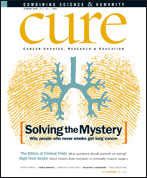Direct-To-Consumer-Advertising: Education or Confusion?
Drug companies’ advertisements promoting their wares directly to consumers have soared since 1997.
“To find out if XYZ is right for you, ask your doctor.” Drug companies’ advertisements promoting their wares directly to consumers have soared since the Food and Drug Administration began allowing the practice in 1997.
In fact, between 2000 and 2006, pharmaceutical company spending on direct-to-consumer, or DTC, advertising to potential patients doubled to about $5 billion—a figure that corresponds with critics’ reports that DTC advertising has changed the traditional doctor-patient dynamic, and has led to congressional hearings challenging laws governing such ads.
Like ads for other consumer products, DTC drug advertisements on television, radio, the Internet, and in magazines also promote their products—prescription remedies—directly to potential consumers. However, this is a radical departure from the way consumers have traditionally learned about medicine, in which patients relied on physicians’ medical expertise to learn about appropriate drugs or therapies.
The message coming from advocacy groups and drug companies alike is that an informed consumer is a healthy, empowered patient. The push for an informed consumer is part of a larger trend in which more people are getting health information from various forms of media as the number of available therapies surge, and an increasingly educated population demands access to the latest cures. The question is, do DTC ads inform and empower consumers, or do they hinder the health care system and endanger patients?
A growing number of critics charge DTC drug advertising is costing the health care system by way of increased drug prices, patient confusion, compromised care, and an eroded patient-physician relationship. The drug and medical device makers deny the practice increases health care costs, and say it in fact helps patients remember to take their medication regularly, as well as informs the public about the importance of screening for cancer and other diseases.
“Any claim about direct-to-consumer advertisements being primarily educational is just false,” says Peter Lurie, MD, deputy director of the health research group at the Washington, D.C.-based consumer rights organization, Public Citizen, pointing to research that shows doctors are more likely to prescribe drugs to those who ask for them. “Instead (DTC ads) are about carefully selected drugs that the patient is likely to convince the doctor to prescribe. Drug companies are in the business of selling drugs.”
The issue becomes more complicated when the patient learns of the increasingly close relationship many doctors have with drug companies, which often offer financial perks—practices that may influence the way doctors prescribe drugs and procedures, says Reshma Jagsi, MD, PhD, radiation oncologist at the University of Michigan Health System who recently authored an article on doctor-industry conflicts of interest in the Journal of Clinical Oncology. In fact, an article published in April in the New England Journal of Medicine found that 94 percent of physicians had some sort of relationship with the pharmaceutical industry.
“Industry and physicians are developing more complex relationships,” Dr. Jagsi says. “So increased transparency is essential if we want to continue to have trust between the doctor and patient. This takes on a heightened importance in the context of drug advertising, as patients need to be able to rely upon their physicians to serve as unbiased intermediaries” between the drug companies and patients, she says.
A bill approved by the Senate in May would allow the FDA to fine drugmakers for false or misleading ads, but the legislation did not include a recommendation from the American Medical Association and the Institute of Medicine to impose a two-year wait period in addition to the current policy of reviewing each ad for balance in presenting the benefits and risks associated with each therapy. Dr. Lurie says such a wait period would make the practice safer, as it allows more time to ensure a drug is safe before DTC advertising leads to mass consumption.
A study published in April in JCO reports problems persist in DTC ads for cancer drugs. Researchers studied cancer-related DTC ads in 13 consumer magazines, including CURE, Newsweek, Good Housekeeping, and GQ, and found overall that the text was complicated and difficult for most people to understand.
So what is the consumer to do? Drs. Jagsi and Lurie agree patients must be even more empowered to take charge of their health care. Ask pointed questions to physicians, such as, “Where do you get your information on this drug?” and “Is there an effective generic version of this drug?”
“The answer is still, ‘Talk to your doctor,’ ” Dr. Lurie says. “But push them harder to justify their decisions.”
